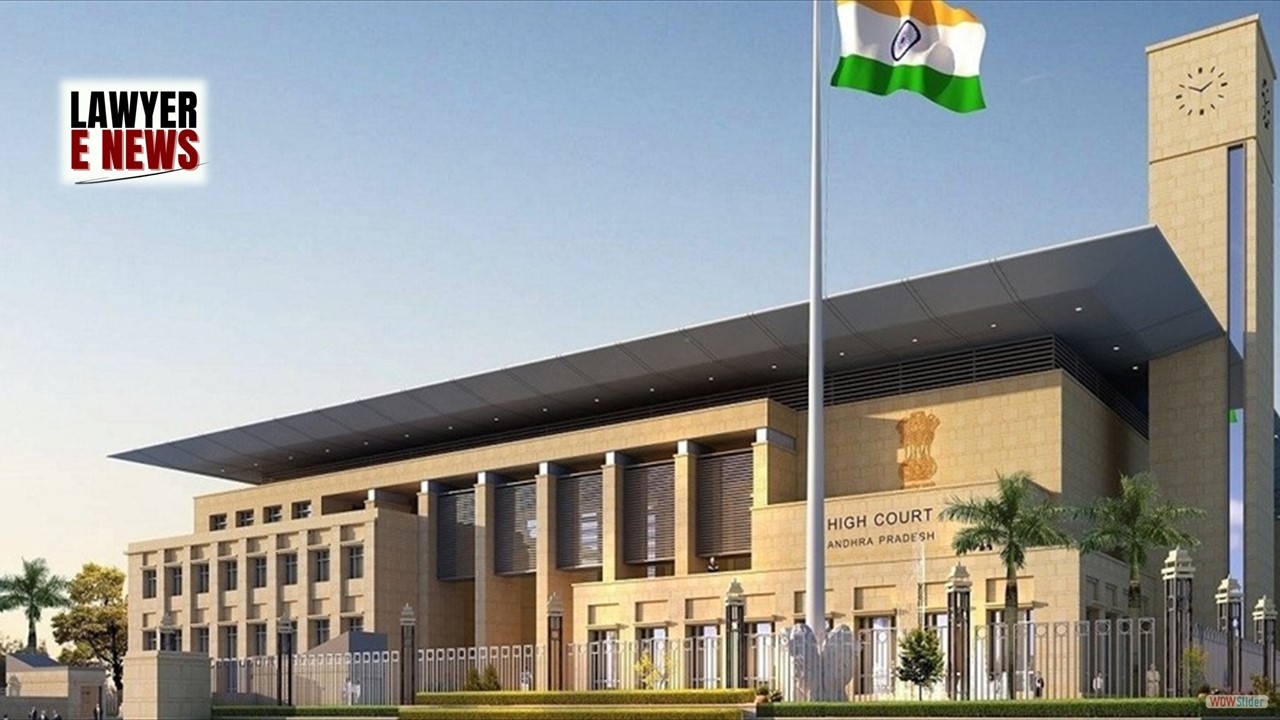-
by Admin
15 February 2026 5:35 AM



Andhra Pradesh High Court dismissed a second appeal under Section 100 of the Code of Civil Procedure, 1908, filed by the seventh defendant. Justice Venuthurumalli Gopala Krishna Rao ruled that the second appeal raised no substantial question of law and affirmed the concurrent findings of the trial court and appellate court, which had decreed the plaintiffs' suit for partition and separate possession of ancestral properties.
The Court observed, "When two courts have given concurrent findings based on proper appreciation of evidence, it is not within the jurisdiction of the High Court to interfere under Section 100 CPC, unless a substantial question of law is raised."
Plaintiffs Prove Entitlement to Partition; Defendant’s Claims Unsupported
The case concerned a partition suit initiated by the plaintiffs, legal heirs of late A.R. Lakshmaiah Naidu, seeking division and possession of family properties. The trial court decreed the suit, holding the plaintiffs entitled to their shares in the properties, based on evidence including 35 exhibits and oral testimony. The first appellate court upheld the decision.
The seventh defendant, a tenant in one of the properties, claimed ownership through a will and possession via a DKT patta. However, both courts rejected his claims as unsupported by evidence. In dismissing the second appeal, the High Court observed, "The defendant failed to prove ownership through a will or a patta. The claim rested on vague oral assertions without supporting documents."
Defendant’s Failure to Prove Will
The appellant relied on an unproduced will, allegedly executed by Doraswamy Naidu, to claim ownership. The Court underscored the defendant’s failure to meet the legal requirements for proving a will, stating:
"It is well settled that the burden of proving a will lies on the propounder. The appellant neither produced the will nor examined attesting witnesses. Moreover, the appellant did not enter the witness box to substantiate his case, raising a presumption that his claims are unfounded."
The Court relied on the principle established in Vidhyadhar v. Manikrao and Others (1999) 3 SCC 573, where the Supreme Court held, "Where a party to the suit does not appear in the witness box... a presumption would arise that the case set up by him is not at all correct."
"No Evidence to Support Patta Claim"
The appellant also argued that the property was covered under a DKT patta and previously possessed by Doraswamy Naidu. However, the High Court rejected this claim, pointing out that:
The patta was not produced as evidence in the trial or appellate courts.
The patta claim was not pleaded in the written statement.
The Court reiterated that unsubstantiated oral claims cannot override documentary evidence or concurrent findings of fact. It observed, "Without producing the patta or other evidence, the appellant’s claim regarding government-assigned land cannot stand."
The High Court emphasized the narrow scope of Section 100 of CPC, stating that interference is permissible only when the case involves a substantial question of law. It cited Boodireddy Chandraiah v. Arigela Laxmi (2007) 8 SCC 155, where the Supreme Court held:
"It is not within the domain of the High Court to investigate the grounds on which findings were arrived at by the appellate court. The High Court cannot reappreciate evidence in a second appeal unless the findings are perverse or contrary to law."
The Court further noted: "A second appeal shall not be admitted if no substantial question of law arises. The findings of the lower courts in this case were based on proper appreciation of evidence and do not require interference."
The Court dismissed the second appeal at the admission stage, holding that the concurrent findings of the trial and appellate courts were legally sound and based on evidence. Justice Rao concluded:
"The findings of fact recorded by both the courts below are free from illegality or irregularity. In the absence of any substantial question of law, this Court cannot substitute its own view for that of the lower courts."
Date of Decision: January 22, 2025
